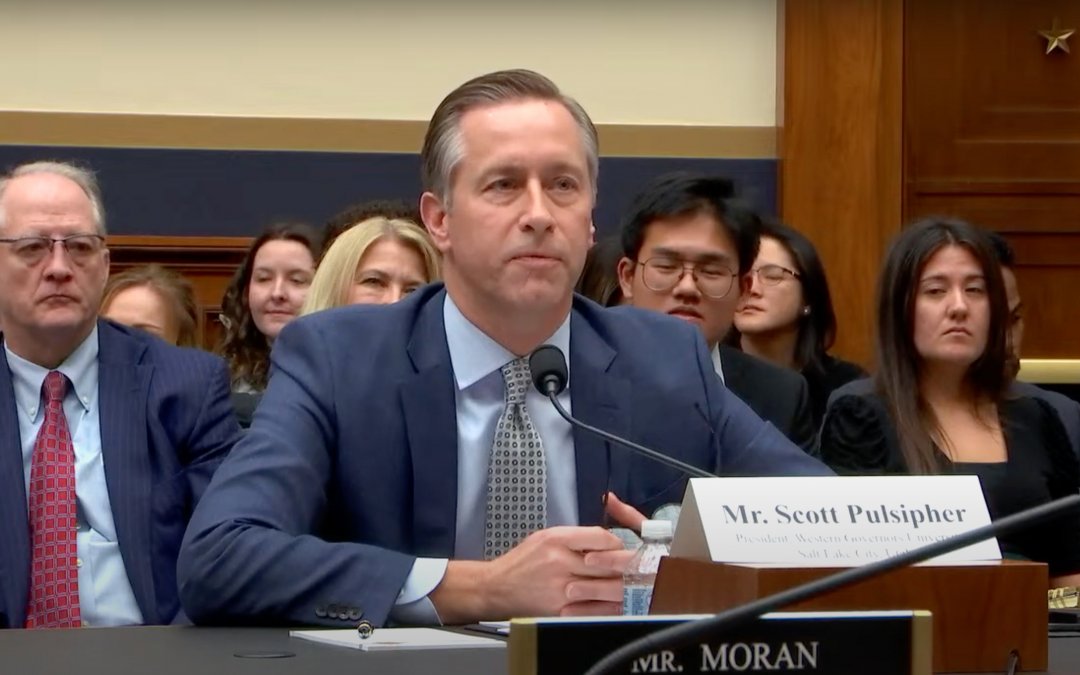WASHINGTON — Job openings nationwide increased to 11 million in 2022, even as the rate of college-educated adults continues to increase. To address this disparity, the Republican-led Education and Workforce Committee met on Wednesday to explore alternative systems to traditional higher education.
Chairwoman Virginia Foxx (R-N.C.) said her goal for the committee was to protect taxpayers while ensuring students could receive an education that guarantees career readiness and fills openings in the workforce. Witnesses presented solutions to problems in higher education, offering their experiences leading alternative, skill-based education paths that produced significant returns while keeping costs low.
Scott Pulsiper, president of Western Governors University, served as a witness in the hearing. WGU is a nonprofit competency-based University that has graduated more than 300,000 students in 26 years. He said graduates are employed at rates higher than the national average, hold better incomes and report higher job satisfaction.
“The challenges today center primarily around the growing failure to live up to education’s promise as a great equalizer,” Pulsiper said. “WGU was founded and designed to better serve those poorly served, underserved or not served at all by conventional options with a focus on access and outcomes.”
Rep. Tim Walberg (R-Mich.) said one of the biggest drivers of the cost of higher education was that graduate students had few limits on borrowing money. He said about 40% of master’s degrees failed to produce a positive investment, and asked Pulsiper how he builds productive partnerships.
Pulsiper said WGU aims to work backward from the job opportunity to identify the relevant skills needed in the workforce. The system then structures its curriculum around those demands, and works closely with employers to fill those spaces. The programs allow students to pace themselves and cost less than $20,000 to complete.
Its responsible borrowing initiative shows students a reasonable amount to borrow and helps individuals “make better choices,” Pulsiper said.
“Fully two-thirds of the students who actually follow that recommendation and another five to ten percent end up actually choosing no federal aid whatsoever,” he said. “What that has allowed WGU graduates to achieve is…that we’ve reduced the borrowing by 30 percent in terms of debt.”
Monty Sullivan, president of the Louisiana Community and Technical College System, said his state holds the most job vacancies. He said the committee must work to expand Pell grant access, particularly for short-term workforce programs.
The system he leads has graduated more than 15,000 students and placed the majority into well-paying jobs. However, the short-term education programs are not accessible to lower income students without Pell grants.
“We have far too many people on the sidelines not participating in the economy. The market for talent is exceptionally tight, and seems to be growing tighter every day,” Sullivan said. “Central to this policy must be the recognition that almost every good job in America requires participation beyond high school.”
Rep. Rick Allen (R-Ga.) said he comes from a business background in construction and believes certain skills are best learned through experience. The Richmond County School System in his district has partnered with Textron specialized vehicles to offer on-the-job training and employment opportunities.
“I come from a business background in construction and I believe that some skills are best learned through real-world experiences,” Allen said. “I’m proud that the 12th District of Georgia isn’t waiting until after high school graduation to get these to give these kids the tools and really the ambition they need to succeed,” Allen said.
Rep. Teresa Leger Fernandez (D-N.M.) said Democrats have also led initiatives to create apprenticeships. About 93% of apprentices finish their programs. Those who do go on to earn on average $77,000 each year.
Sullivan emphasized that skill-based higher education does not have to be the end of learning. While the initial learning in programs including apprenticeships can take between six and 10 weeks, he said having an income will encourage people to continue their growth through the education system.


